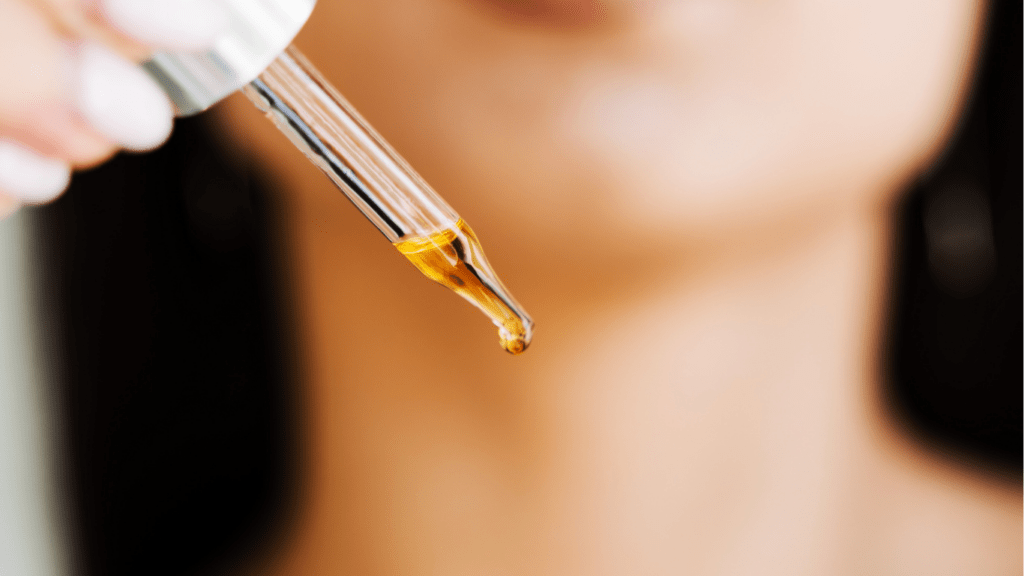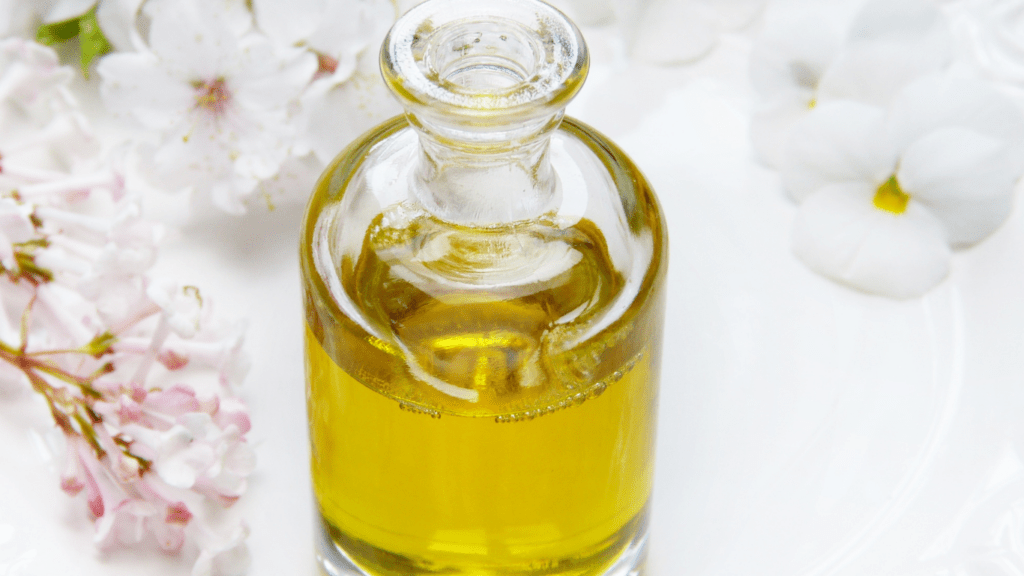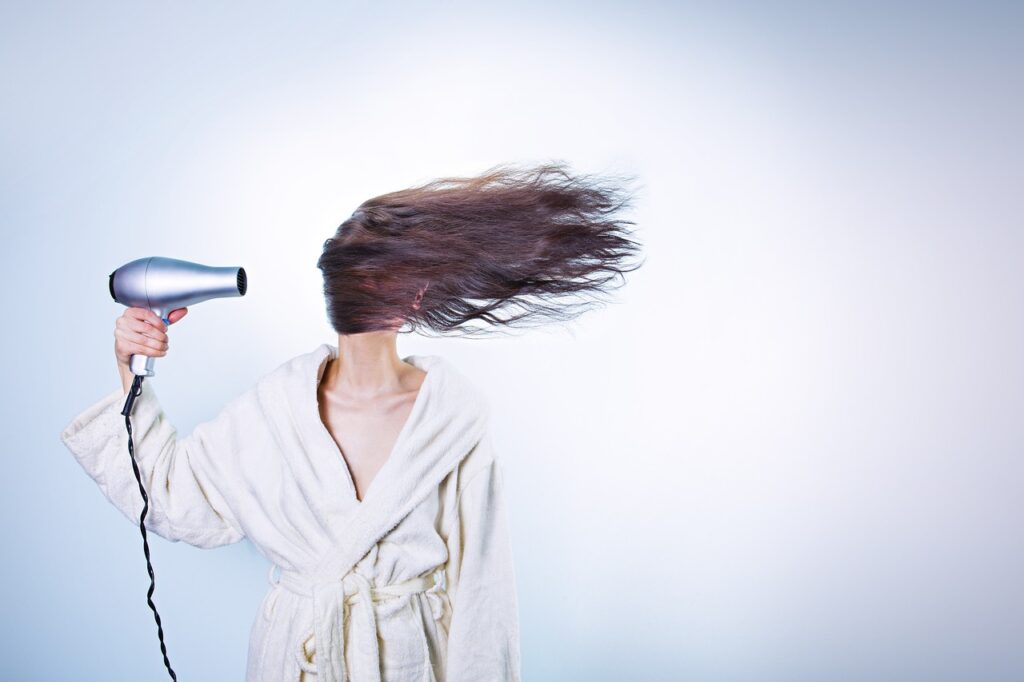Why Use Hair Oils?
Hair oils provide a wide range of benefits for maintaining healthy, strong hair. They can deeply nourish hair strands, combat dryness, and add a natural shine. Unlike synthetic products, natural oils like argan and coconut penetrate the hair shaft, delivering essential fatty acids and vitamins directly where they’re needed.
Nourishment is a critical benefit of hair oils. Rich in antioxidants and nutrients, oils like olive and almond support scalp health and strengthen hair from root to tip. For example, vitamin E in almond oil helps repair damage and reduces breakage.
Hair oils also reduce frizz by sealing the cuticle, which keeps moisture in and humidity out. For instance, argan oil, known as “liquid gold,” is highly effective in smoothing frizz and adding a glossy finish to your hair.
Promoting hair growth is another advantage. Oils such as rosemary and castor have properties that boost circulation to the scalp, stimulating follicles and encouraging growth. Regular scalp massages with these oils can lead to thicker, healthier hair over time.
Key Ingredients to Look For
Vitamins
Certain vitamins provide significant benefits to hair health. Vitamin E, present in oils like almond, offers antioxidant properties that reduce oxidative stress and maintain a healthy scalp. Vitamin A, found in carrot seed oil, promotes sebum production, which moisturizes the scalp and hair.
Fatty Acids
Essential fatty acids are crucial for maintaining and improving hair strength. Omega-3 and omega-6 fatty acids in oils like argan and sunflower ensure hair’s elasticity and reduce breakage. They penetrate deeply into hair strands, repairing damage and providing long-lasting moisture.
Proteins
Proteins help restore and strengthen hair structure. Keratin, naturally found in many hair products, smoothens and repairs damaged hair. Silk proteins, present in serums and conditioners, create a protective barrier, adding shine and reducing frizz.
Antioxidants
Antioxidants combat free radicals that damage hair cells. Oils like: grapeseed, rich in antioxidants, protect hair from environmental damage. Green tea oil, containing catechins, also promotes hair growth and reduces hair loss.
Essential Oils
Essential oils offer therapeutic benefits for hair and scalp health. Tea tree oil, known for antifungal properties, combats dandruff and maintains a clean scalp. Peppermint oil stimulates blood circulation, promoting hair growth and thickness.
Minerals
Minerals like zinc and magnesium support overall hair health. Zinc, found in pumpkin seed oil, maintains hair follicle health and reduces shedding. Magnesium in coconut oil prevents calcium buildup on the scalp, ensuring healthier hair growth.
Organic Compounds
Some organic compounds enhance hair health. Squalane, a natural moisturizer in olive oil, provides deep hydration without making hair greasy. Biotin (Vitamin B7), found in sunflower oil, strengthens hair follicles and promotes growth.
Top Hair Oils for Nourishing and Strengthening Your Hair
To nourish and strengthen your hair, specific oils offer unique benefits. Here are the top choices:
Argan Oil
Extracted from the argan tree’s kernels, argan oil contains essential fatty acids and vitamin E. It reduces split ends and frizz, providing a smooth and shiny finish. Its antioxidants protect hair from environmental damage. Apply a few drops to damp hair for best results.
Coconut Oil
Rich in lauric acid, coconut oil penetrates hair shafts, reducing protein loss. It moisturizes and prevents breakage. Use it as a deep conditioning treatment by massaging it into your scalp and hair. Leave it for an hour before rinsing for optimal hydration.
Jojoba Oil
Jojoba oil mimics natural sebum, balancing scalp oils. Its vitamins and minerals nourish hair follicles, promoting growth and preventing dryness. It’s ideal for those with scalp issues like dandruff. Apply it as a leave-in treatment for best results.
Castor Oil
Castor oil is high in ricinoleic acid, enhancing blood circulation to the scalp. This stimulates hair growth and strengthens strands. Its antifungal properties combat dandruff. Mix castor oil with a lighter oil like almond or coconut for easier application.
Olive Oil
Olive oil’s oleic acid and vitamin E content make it a powerful conditioner. It penetrates the hair shaft, locking in moisture and adding shine. Warm olive oil and massage it into your scalp and hair. Leave it for at least 30 minutes before washing for best results.
How to Use Hair Oils Effectively

Using hair oils effectively ensures you get the maximum benefit from these nourishing and strengthening products. Proper application techniques and frequency of use are crucial for optimal results.
Application Techniques
- Ensuring proper application techniques can maximize the benefits of hair oils.
- Always apply oils to clean, damp hair since this allows better absorption.
- Use a few drops of oil, rubbing them between your palms before gently massaging them into your scalp and hair.
- Focusing on the roots can help with scalp health while applying oil along the length can address frizz and split ends.
- Using a wide-tooth comb helps distribute the oil evenly.
Frequency of Use
Determining the right frequency of use depends on your hair type and the oil used. Generally, using hair oils 2-3 times a week provides nourishment without overwhelming the scalp.
For lighter oils like argan or jojoba, daily application might be suitable for dry hair. However, heavier oils like coconut or castor are best used in smaller amounts or less frequently to avoid buildup. Experiment and adjust based on how your hair responds to find the ideal routine.
Potential Side Effects and Precautions
Essential to hair care with natural oils are awareness and caution, particularly concerning potential side effects. While oils generally benefit most hair types, some might provoke allergic reactions or cause buildup. Adverse reactions include:
- scalp irritation
- redness
- itching
Always perform a patch test on a small skin area before full application.
Certain oils like coconut and castor can clog pores for individuals with oily scalps, leading to acne or scalp issues. Limiting heavy oil use or opting for lighter oils like argan or jojoba can mitigate this risk.
Overuse of oils may also cause buildup, leaving hair greasy or limp. Regular shampooing ensures oils don’t accumulate excessively. Avoid leaving oils on the hair for prolonged periods unless used in deep-conditioning treatments.
Using essential oils without dilution can cause skin irritation. Diluting with carrier oils in proper ratios is crucial; typically, mix 2-3 drops of essential oil with a tablespoon of carrier oil. Sensitivity to scents warrants testing small amounts to avoid headaches or respiratory discomfort.
Specific medical conditions like seborrheic dermatitis or scalp psoriasis can worsen with certain oils. Consulting a dermatologist ensures suitability and safety for those with underlying scalp conditions.
Pregnant or nursing individuals should seek medical advice before using essential oils, as some may have contraindications.
By remaining cautious and informed, anyone can safely incorporate hair oils into their routine for nourishing and strengthening hair.



 Senior Hair Health Advisor
Maria is a dedicated professional specializing in hair health and wellness. She brings a wealth of knowledge on how to maintain strong, resilient hair through natural and science-backed methods. Maria’s detailed guides and expert advice help readers enhance their hair health, offering personalized solutions to common hair concerns.
Senior Hair Health Advisor
Maria is a dedicated professional specializing in hair health and wellness. She brings a wealth of knowledge on how to maintain strong, resilient hair through natural and science-backed methods. Maria’s detailed guides and expert advice help readers enhance their hair health, offering personalized solutions to common hair concerns.
